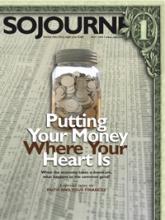What happens to a dream deferred?” Langston Hughes asks in his classic poem “ Harlem.” Whether it is the dream of owning a home, paying for college, or making that final payment on a car, when the way of the world puts our dreams out of reach, what are the consequences? As the last line of Hughes’ poem suggests, those dreams may “explode.”
Today millions of American dreams are exploding into debt. Small-dollar, short-term payday loans—at outrageous annual percentage rates, as much as 1,000 percent in some cities—are offered to those experiencing a range of cash-flow problems. For larger expenses such as homes and cars, predatory lenders grant loans at higher-than-prime rates to borrowers whose credit history and financial status suggest that they are likely to default on loan repayments. Exorbitant interest rates are often coupled with hidden predatory charges that intentionally trap people in cycles of debt, forcing them to lean on lenders all the more. Pursuing the dream boils down to billions in losses for families, and billions in gross revenue for loan sharks.
Tom Allio, senior director of the Ohio Coalition for Responsible Lending (and social action director for the Catholic Diocese of Cleveland) says the lending debacle is like a “modern-day version of the story of David and Goliath.” The “Davids” are the faith-based groups, housing advocates, and community members organizing to go up against the “Goliath” of the lending industry. Here are the five stones they’re using—and that we can adopt—to slay this “Goliath.”
1. Develop an awareness campaign for your congregation focusing on the specifics of lending practices and how the industry targets people. It’s also important to inform your group about your city or state’s laws regarding basic protections for borrowers and restrictions for lenders.
Read the Full Article
